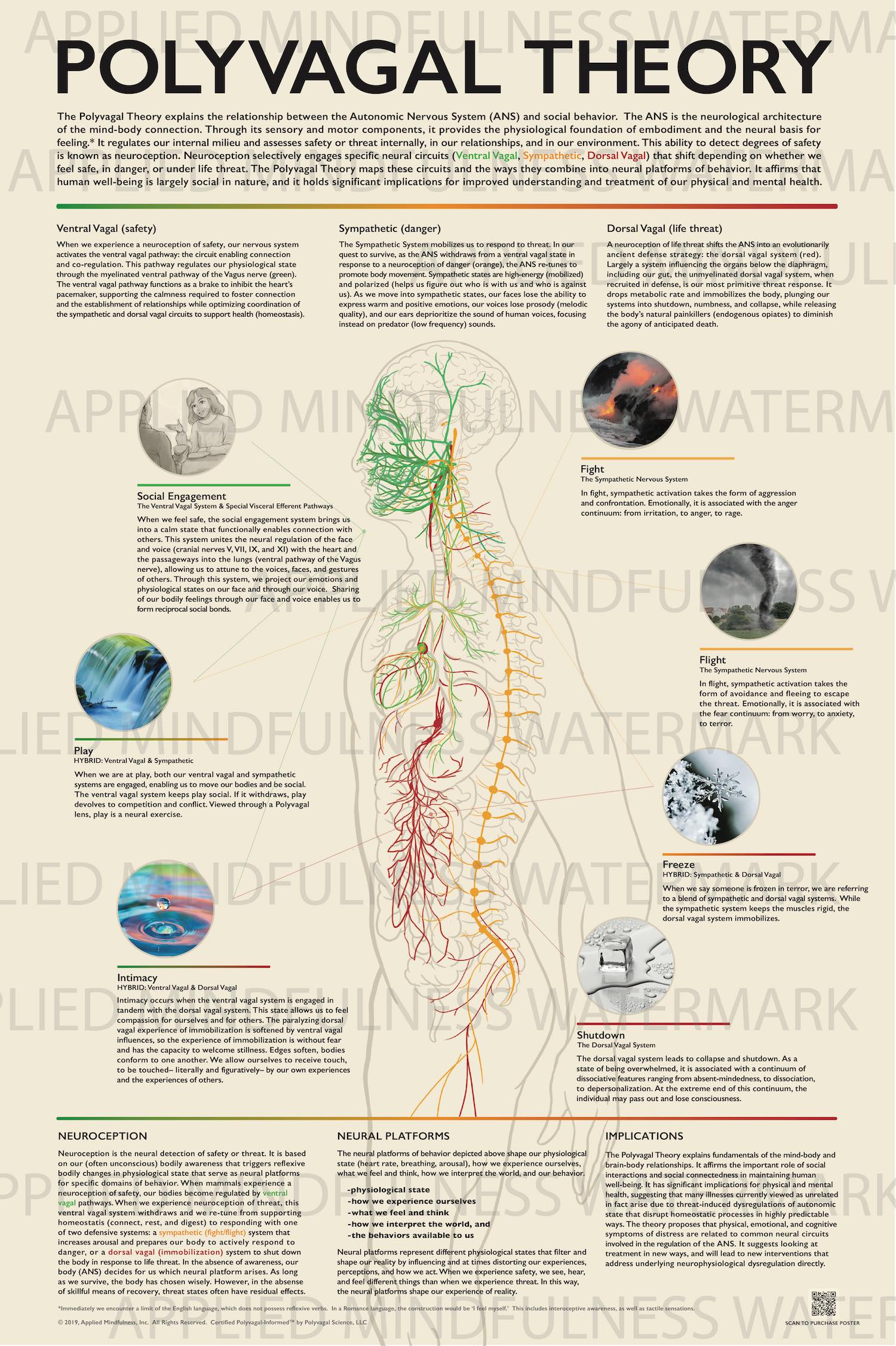Ok. So you are looking for clinical teaching tools to help explain Autonomic Physiology to your patients and clients.
Our Visual Design team has created the Connection Phenomenology poster series, with a series of unique and beautiful posters designed to live in your clinical space to make it easier for you to explain Polyvagal Theory and Autonomic Physiology to your patients and clients while you are working with them.
Our best-selling neuro-anatomically accurate Official Polyvagal Poster (36 x 24 inches) was designed in three versions with Dr. Stephen Porges, Developer of the Polyvagal Theory, and with input from Deb Dana, LCSW, Founding faculty at the Polyvagal Institute. The poster explains Polyvagal Theory, and depicts the seven states the Dr. Porges describes, including 4 pure, and 3 hybrid states. The human version of the poster depicts the states with a female figure. This poster is meant for general educational purposes only, as it could be triggering in a clinical setting. Our water and dog versions (dogs are social mammals who display all 7 states) are designed for clinical implementation, and live in wellness professional offices in 50 countries.
Our new Autonomic Physiology Poster (24 x 36 inches) presents our latest research findings on Autonomic state, expanding the functional range of states to 14 total, with the addition of 7 more hybrid states we have noted in our clinical work. It explains triphasic neuroception, and presents the entire work through a color theoretical model. For those working with clients digitally, we offer the components of the poster in a digital flipchart form.
Our neuro-anatomically accurate Autonomic Physiology poster (12 x 16) illustrates the neural circuitry of the Autonomic Nervous System, with general information about its importance. It is smaller than the Official Polyvagal Poster or the Autonomic Spectrum poster, and provides a lovely complement to either.
Our beautiful Non-cognitive Ways of Knowing poster disrupts the hegemony of cognition by differentiating 11 non-cognitive ways of knowing from a variety of languages and cultures around the world. Asserting and extending the notion that I feel myself, and therefore I am - the Polyvagal reformulation of Descartes' famously erroneous assertion - I think therefore I am, the Ways of Knowing poster validates and differentiates the intelligence of feeling.
Assembling 34 connection keywords from languages and cultures around the world, the Connection Keywords poster enriches and dimensionalizes your vocabulary of connection for describing inward landscapes, and the landscapes of relatedness and connection with the Living World. Did you know there is a word in Japanese for feelings too deep for words? Or that the Anishanaabe word for moon is Grandmother Moon? Or that the greeting of the Indigenous Kumeyaay people means, I see the fire in your heart?







